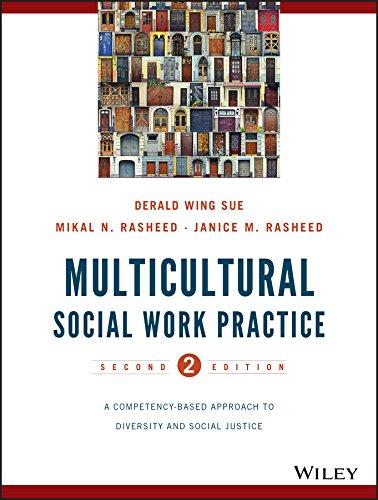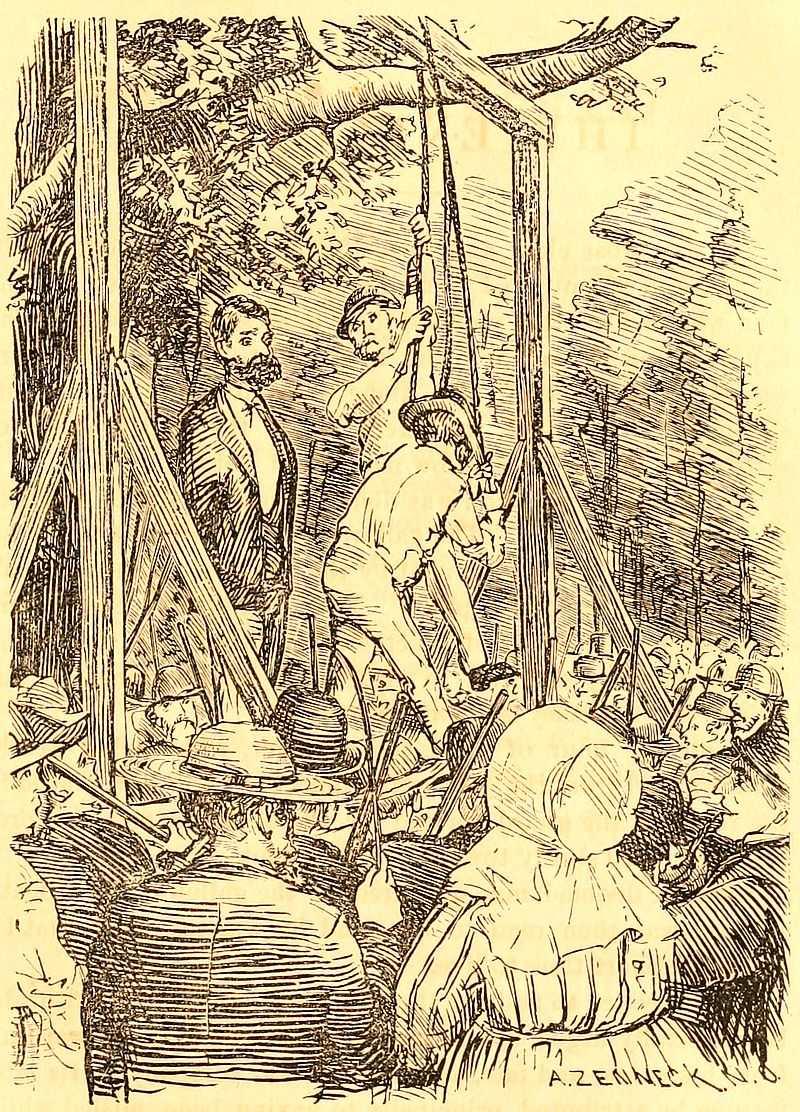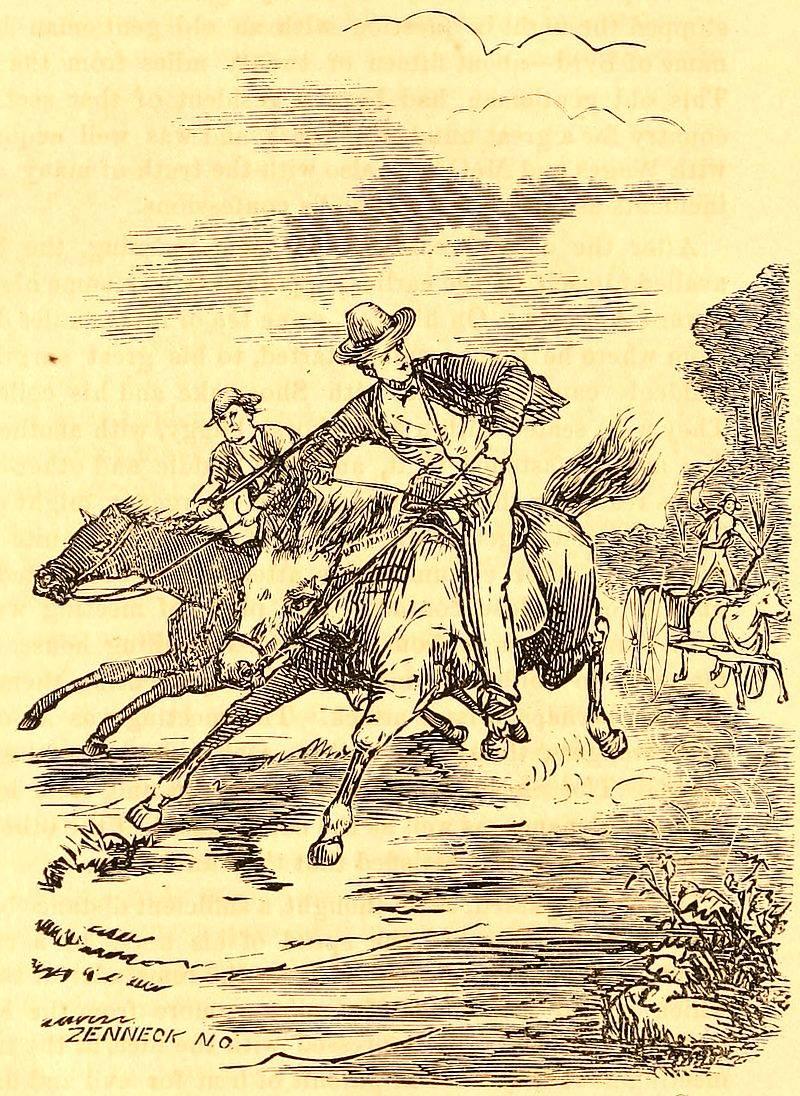(eBookPDF)SocialPsychology:AStorytelling Approach2nded.Edition
https://ebookmass.com/product/ebook-pdf-social-psychology-astorytelling-approach-2nd-ed-edition/

More products digital (pdf, epub, mobi) instant download maybe you interests ...

Social Media Marketing: A Strategic Approach 2nd Edition – Ebook PDF Version
https://ebookmass.com/product/social-media-marketing-a-strategicapproach-2nd-edition-ebook-pdf-version/

(eBook PDF) Social Psychology Australian & New Zealand Edition 2nd Edition
https://ebookmass.com/product/ebook-pdf-social-psychologyaustralian-new-zealand-edition-2nd-edition/

(eBook PDF) Social Psychology: The Science of Everyday Life 2nd Edition
https://ebookmass.com/product/ebook-pdf-social-psychology-thescience-of-everyday-life-2nd-edition/

Quantified Storytelling: A Narrative Analysis of Metrics on Social Media 1st ed. Edition Alex Georgakopoulou
https://ebookmass.com/product/quantified-storytelling-anarrative-analysis-of-metrics-on-social-media-1st-ed-editionalex-georgakopoulou/

Multicultural Social Work Practice: A Competency Based Approach to Diversity and Social Justice 2nd Edition, (Ebook PDF)
https://ebookmass.com/product/multicultural-social-work-practicea-competency-based-approach-to-diversity-and-social-justice-2ndedition-ebook-pdf/

Social Psychology 9th Edition, (Ebook PDF)
https://ebookmass.com/product/social-psychology-9th-editionebook-pdf/

Social Psychology 14th Edition, (Ebook PDF)
https://ebookmass.com/product/social-psychology-14th-editionebook-pdf/

Social Psychology 1st Edition – Ebook PDF Version
https://ebookmass.com/product/social-psychology-1st-editionebook-pdf-version/

Abnormal Psychology: A Scientist-Practitioner Approach 4th Edition – Ebook PDF Version
https://ebookmass.com/product/abnormal-psychology-a-scientistpractitioner-approach-4th-edition-ebook-pdf-version/
Another random document with no related content on Scribd:
within their knowledge; but he would give no direct answer— shrewdly eluding the inquiries.

EXECUTION OF JAMES COPELAND.—[See Page 118.
The Sheriff then asked him, in hearing of many lookers-on, if the details of his confession, previously made to that officer, were true. He replied that they were.
His hands were then tied and the cap pulled over his face, and he was told that he had but a few moments to live. He exclaimed, “Lord, have mercy on me!” and he was praying when the drop fell, and a brief struggle ended his blood-stained career.
GRAND JURY.
John McCullum, Lemuel Strahan, John W. Carter, Allen Travis, Lewis H. Watts, James Chappell, G. W. Rawls, Wm. Jenkins, Peter McDonald, Malachi Odom, Joseph G. Young, Jas. M. Bradley, Sr., Stephen Smith, Wm. Hinton, Edmund Merritt, Sidney Hinton, Jos. T. Breeland, Henry Dearman, Lorenzo Batson, John Fairley, Foreman.
WITNESSES.
Wm. Johnson, Chancey B. Stevens, Wm. Laudman, Gibson Waley, John Anderson, Wm. C. Griffin, Moses Fullingam, Laoma Batson, Jas. Batson, David Dubusk, Sr., Jefferson Williams, David Dubusk, Jr.,
Wm. Griffin, Peter Fairley, Sr., Peter Fairley, Jr., Alexander Fairley, Sampson Spikes, Westley Spikes, W. H. Nicols, John Fairley, Prosecutor.
MEMBERS OF THE COPELAND AND WAGES CLAN.
J. Baker, C. W. Moore, W. W. Ratlief, G. Buskings, J. Harper, J. Bowings, J. W. Westly, J. Whitfield, J. Whitlom, J. Porter,
J. Butler, J. Hopkins, J. Harper, W. P. Hobs, W. C. Whelps, Jasper Whitlow, E. Sharper, T. Powell, J. Doty, D. Doty, S. S. Shoemake, J. Gillet, W. Brown, J. Taylor, S. Teapark, J. Pool, John Copeland, T. Copeland, Henry Copeland, Wm. Copeland, J. Elva, H. Sanford, R. Cable, J. Hevard, G. Daniels, G. H. Wages, C. H. McGraffin, Chas. McGrath, J. Welter, G. Welter, A. Brown, D. Brown, N. McIntosh, E. Myrick, J. F. Wright, J. Dewit,
W. Ross, W. Sanferd, J. McClain, S. Harden, J. Harden, J. Waters, Jr., G. Clealand, — Moulton, — Overall, G. Young, Thos. Hix, J. Alfred, J. Kelly, A. Watson.
NOTE.—If the guilty should not, by any means be screened, yet if positive doubts exist, the suspected should have the benefit of such doubts. Accordingly the initials to the names of Moulton and Overall have been omitted; as the jury on “trial” expressed doubts as to what particular parties Copeland referred to in the names given. There are many by the same name, and even part of the same initials, yet have no affinity in anything else. It is said that “public sentiment is seldom wrong, and never wrong long;” therefore with all the circumstances before it, it is requested that the public will approach the subject with an unprejudiced mind, and decide faithfully and justly to all parties concerned.
LETTER OF JAMES COPELAND TO HIS MOTHER.
(WrittenthenightbeforehisExecution.)
AUGUSTA, MISSISSIPPI, October 29th, 1857.
MRS. REBECCA COPELAND:
Mydear Mother—It is with painful feelings indeed, that I attempt writing to you on the present occasion. I take this opportunity,
knowing at the same time, that it is the last one of the kind which I shall ever be permitted to enjoy while here on earth. It is long and much that I have suffered while in prison since my first confinement in Mobile county, and yet it seems as though nothing will pay the debt but my life. I have had my trial and was convicted upon a charge of murder, and I have received the awful sentence of death. The sheriff told me to-day, that to-morrow at 2 o’clock I will be hanged, according to the order of court. Oh, my dear mother, what an awful sound is this to reach your ear. Oh, would it could be otherwise; but you are aware that I justly merit the sentence. You are knowing to my being a bad man; and dear mother, had you given me the proper advice when young, I would now perhaps be doing well. It is often I have meditated on this subject since my confinement in prison, and often have I recollected my good old father’s advice when I was young, and repented a thousand times over, with sorrow and regret, that I have failed to receive it as good, benevolent advice. If such a course I had taken, I have no doubt, but what I would be doing well at this time. But it is too late now to talk of things past and gone. The time has come when I shall have to take my departure from this world, and it pains my heart, to know that I have to leave you and my brothers and sisters; and much am I mortified to think how distantly you have treated me while here in prison. Not the first time have you been to see me; but I can freely excuse you for all this, and I do hope you will prepare to meet Jesus in Heaven.
Dear Mother, long has the time been that life was not any satisfaction to me. I am now in the dungeon with the cold and icy bands clasped around me, and cold as clay. Much have I suffered, but after two o’clock to-morrow, my troubles will all be over, or worse than they are at present. This I am not able to tell. I have been preparing to meet my God, praying diligently for mercy and for the pardon of my sins, but I do not know whether my prayers have been heard or not.—The Scriptures say “that the spirit of the Lord shall not always strive with man,” and again say: “he that calls upon
the Lord in the last hours shall be saved.” If so, I feel some spark of hope, but I tell you this hope is hanging upon a slender thread.
Dear Mother, it makes the tears trickle down my cold checks to have to pen this statement to you. Dear Mother, I have to close this letter. My heart is overflowed already, so when you receive this, you can keep it as a memorial, and remember that poor Jim is no more on earth; that he has bid you a long farewell.
Dear Mother, it appears as though my heart will break at the very thought of this. Oh, could I but see you once more before my death, it would give my aching heart some relief; but we have to part without this pleasure.
Now my good old Mother, I bid you a long farewell, forever and forever.
JAMES COPELAND.
MYSTIC ALPHABET
Used by the Copeland and Wages Clan, in their secret correspondence and documents.

A P P E N D I X .
PLANS DEVISED TO PRESERVE THE LIFE OF COPELAND.
THE LAST BOLD EFFORTS TO SAVE THE LIFE OF JAMES COPELAND PROVED INEFFECTUAL; BUT THE SAME AGENTS SUCCEEDED BY REFINED MOVEMENTS IN PROCURING THE ACQUITTAL OF JOHN COPELAND.
The organization of the Wages and Copeland Clan embraced a diversified talent of an extraordinary grade in different departments of operations. It commanded some of the ablest ability belonging to the bar and the medical profession, with other agents who could be hired or engaged for temporary assistance. It requires more than a cursory contemplation to anything like a full comprehension of the lengths, and breadths, and depths of its vast theaters of operations. Many, perhaps, not admitted to the council and secret conclaves of the organization, could be engaged for a stipulated sum to perform important services in defense and protection of its active members, who might inwardly condemn its pernicious fields of operations against the best interests of society. Whether such conduct can stand the test of reason and argument it is for others, with the reader, to determine. The worse the case the richer the fees for the lawyer, and so of the medical profession. As frequently happens, the lawyer scruples at nothing to win a victory for his client. In some places this course is fashionable and not at all odious. As long as the attorney keeps his defense within legitimate bounds, and avails himself of every lawful opportunity for the advantage of his client, no well-balanced mind can be disposed to censure, because on the
other side, the prosecution will do the same. But when foul and corrupt means are resorted to; when the most vicious and depraved of actions are brought in play to screen the guilty and make crime respectable, then it is that public sentiment should be loud against such abominations, no matter whether against the medical or legal profession, or against any other class who can be brought to perform the services of infamy.
The period betwixt the imprisonment and execution of James Copeland, three parties from Alabama came and settled in Perry county, Miss., one in, and the other two about Augusta. These three performed their part so well—so concealed and reserved as to pass for gentlemen in the highest degree respectable. But few, if any, had suspicion until afterward of their object to assist the captured in escaping the last penalties of outraged law.
One of the three, who settled in Augusta; a skilled doctor and surgeon, behaved himself so well in every respect—on all occasions exhibiting a winning and an affable deportment—everybody’s friend with the most lavish of generosity—sparing no exertions to gain the confidence and admiration of those in power and of influence; this is the man who proposed to the sheriff the plan to save the life of James Copeland. This proposition was made betwixt the time of his conviction and execution. The particulars are as follows: The doctor to the sheriff: “There is now a fine opportunity of making one thousand dollars in gold, providing that you will act in concert with me in permitting certain things to be done before the execution of Copeland.” There was something so bland, so expert, and so graceful in the conduct of the strange doctor as to make him friends wherever he went. He insinuated himself into the confidence of the sheriff; and when the proposition was made for certain things to be done before execution, for and in consideration of a thousand dollars, the curiosity of the sheriff could not be otherwise than powerfully excited to learn all particulars of the plan in contemplation, and, accordingly, so far indulged or humored the beginning so as to obtain the whole of what was then behind. The doctor continued, and gave the name of him who had a thousand
dollars to pay for the preservation of the life of Copeland; and to be done in the following manner, secure from exciting any suspicion whatever. The doctor to the sheriff: “Allow me about half an hour before the time arrives for your taking him out of jail to the place of execution, to go in under the pretence of shaving and dressing him suitably to the solemnity of the occasion, during which time I will perform an operation in tracheotomy by inserting into the trachea, or wind-pipe, a small silver tube sufficient for the admission of air into the lungs to keep up some degree of respiration, so that when he shall have hung the allotted time, he can be cut down and by an extension of the tube, he can be so buried as to prevent the extinction of life; which, as soon as convenient, he can be disinterred and so cared for by artful means until the recovery so far progress as will enable him to successfully escape.”
The sheriff listened to all this with a smile, and treated the whole as rather a plausible romance than a possible reality; but firm to the duties of his office, he yielded not to the temptation; yet to maintain good faith as to what transpired before the proposition was fully made, and for prudent considerations in regard to his own safety, he has refrained from publishing this narrative at an earlier date, because conscious that the public interests, though delayed, would best be served by so doing in the long run.
Shortly after the execution of James, John Copeland, the brother of the former, was arrested, brought to the same jail, and tried in the same case, and for the same crime of murder.
The State was represented by George Wood, Esq., and the defence by Wirt Adams as principal. Both sides labored hard and wonderfully skillful. The argument of the latter occupied about three or four hours in delivery. The evidence against John Copeland was quite as strong as against his convicted brother, but the juries were of different material. The three strange immigrants from Alabama, who then had recently settled in and about Augusta, managed to get on the jury. This was not hard to do, as the county had pretty much been exhausted before to get an acceptable jury not disqualified by
some objections brought forth. When the jury retired, the three here referred to, having the most ingenuity, lead the other remaining part, the consequence of which was a verdict of acquittal. This verdict aroused the indignation of the public both far and near murmurs everywhere, and satisfaction nowhere. So irritated were the populace that, in all probability, the life of Copeland would have been taken by violence the night after his liberation, but for the timely notice given him for immediate escape.
The following morning he was heard from as being seen on the opposite side of Leaf river, about thirty miles below Augusta, in the direction for Pascagoula river. It is supposed he went almost direct to Angelina county, Texas, where his mother and family settled after leaving Mississippi.
But little time had elapsed after this before the Sheriff of Perry received a letter from Col. Pickering, of this (Angelina) county, warning him of the necessity of being on his guard—that Thomas, another brother of the Copeland family, had left that vicinity for Mississippi; and, according to the general belief there, with a design on the life of the Sheriff; but although he passed through the county of Perry, by the way of Black Creek, to Mobile, Alabama, yet if he made any secret movement for the assassination, he never knew it.
The Copeland family, in Angelina county, instituted a formidable prosecution against Col. Pickering, but his reception of the pamphlet containing the confession, caused the District Attorney of that place to dismiss the prosecution, and for this the Copeland family was heard to swear vengeance against the Sheriff who had published them; therefore, well taken were the grounds of fear entertained by Col. Pickering. Immediately after the acquittal of John Copeland, the three strange immigrants left for parts unknown.
S. S. SHOEMAKE, THE ARCH-MONSTER OF ATROCITY AND THE PERFECTION OF DECEPTION, WITH HIS JOHN R. GARLAND LETTER.
An organization may soon come to naught, even though founded on principles in every respect sound, healthy and legitimate, if the individuals composing it are defective in brains and energy, the exercise of which are essentially necessary for continued existence. But an organization, based on the contrary of such principles, may continue for years to perpetrate the darkest of human atrocities— spreading terror or devastation both far and wide, if its members, or the leaders, possess the mental force requisite to plan, to command and to execute according to the proper definitions of skill, disguised treachery, and firm intrepidity brought to bear against the less suspecting, but the more honest members of society.
The unfolding of the character of S. S. Shoemake will reveal all the traits of vice, of meanness, of guilt, and of all which contributes to the perfection of human treason and perfidy.
Some of the most masterly strokes of guile and consummate deception are to be found in his John R. Garland letter and the subsequent circumstances with it connected. The ancient Judas fell very far short in comparison with this modern specimen of cruelty, of plunder, and of hypocritical imposture. A marauder, a being destitute of honor, pride or principle, and the very incarnation of all that is vile and abhorrent. This is the man whose character, to some extent, will next be unveiled in detail.
But a short time elapsed after the publication of Copeland’s confessions until a letter, signed John R. Garland, was received by the Sheriff of Perry county, making inquiry about S. S. Shoemake and two others by the names of J. and D. Doty—all implicated in Copeland’s confessions. This letter, as will afterward be shown, was written by Shoemake himself, and was mailed at DeKalb, Kemper county, Mississippi, the substance of which will next be given:
DEKALB, MISS., October —, 1858.
J.R.S.Pitts,SheriffPerryCounty,Miss.:
DEAR SIR As I feel very much interested in the future welfare of this immediate section of our country, and am desirous of
ascertaining the names of all men of degraded character, so far as practicable, who might chance to live among us, and more especially those characters as represented to you by Copeland, in his recent confessions as a united band of land pirates, which fact has been apparent with me for some years past of the existence of such a clan throughout our entire country. And believing that we have some of the same characters residing within our midst, I thus communicate in confidence to you, trusting that you will be kind enough, on the reception of this, to answer the same, and inform me whether or not the names of S. S. Shoemake, and two other men here, J. Doty and D. Doty, are the same persons as implicated by Copeland in his confessions to you.
So far as the former character is concerned, there is no doubt existing in the minds of the people here but that he belongs to some secret clan. His conduct, and every action through life, go to establish this conclusion. He spends the greater portion of his time away from home, and at times is absent from home for months, none knowing here anything of his whereabouts. And in this way, to the mystery of every one, he makes his peregrinations throughout the country, but whether near or distant is unknown to us. Frequently after having been absent until the community would begin to wonder and ask the question as to the cause of such continued detention, as well as the actuating motives for so much of absence, but none can give any solution—none any intelligence in reference to him. To say the least, there is great suspicion mingled with much curiosity.
Generally when he returns home from making those protracted journeys, he manages so as to arrive some time during the night, bringing with him droves of horses, mules, and sometimes more or less negroes. After his return, the first thing that is known of him, he is seen in the grog-shop bright and early in the morning, waiting the arrival of the bar-keeper for his morning bitters. In this way he seems to be continually whiling away his time—claiming to be acting in behalf of a State committee. On meeting this person, S. S. Shoemake, one that is not personally acquainted with him would not
for a moment suspect anything wrong, for he is calculated by his affable deportment, on first acquaintance to make a very favorable impression on the mind.
As we feel much interested in this vicinity relative to this matter, I trust that you will, on receipt of this, give us the desired information above asked for, as there is no favor within your power that you could at this time extend to us that would be received with so much gratitude.
When addressing your communication, you will please remember not to direct to me, but simply address your letter to box, No. 27, DeKalb, Kemper County, Mississippi.
I make the above request in order that my designs may not be frustrated—also, you will please suffer no person to see this communication.
Hoping to hear from you soon, I remain,
Very respectfully,
JOHN R. GARLAND
.
This extraordinary letter elicited the following reply: AUGUSTA, MISSISSIPPI, ——, 1858.
JohnR.Garland,DeKalb,Miss.:
DEAR SIR I am in receipt of yours bearing a recent date, asking me for information relative to certain characters within your vicinity. Giving three names, you wish to know if they are the same persons who were implicated by Copeland in his confession to me.
In answer, at the time of writing the confession, I could have located all the parties given me as members belonging to the Wages and Copeland clan, but did not at the time deem it expedient to do so, because believing that the people in the different sections of the country wherever they might live would be very apt to know them from their general character. But from the description you give of S.
S. Shoemake, and from one memorable remark that Copeland made at the time he gave me this name, I am constrained to favor the opinion that he is the same person as both he and yourself have pointed out.
Very respectfully,
J. R. S. PITTS.
SHOEMAKE VISITS THE SHERIFF IN PERSON WITH HIS BOGUS AUTHORITY FROM THE PROBATE JUDGE OF KEMPER COUNTY.
But a short time intervened after the correspondence until Shoemake himself suddenly made his appearance in person at the door of the parlor in which the sheriff at the time was engaged in reading. In reaching so far, Shoemake had passed the outer gate, fronting the street, unnoticed by the watch-dog, or by any of Hon. Drewry Bynum’s family with whom the sheriff was boarding. Shoemake boldly opened the parlor door, and, after a graceful and dignified salutation, next inquired if the sheriff was present. Being answered in the affirmative, he was then invited to walk in and take a seat, for which he returned the usual compliments of civility. His next expressed wish was to retire to the sheriff’s office, which was situated within a few paces of the dwelling-house—all enclosed within the same yard, as he had communications to make on official business. Both retired accordingly, when, as soon as properly seated, Shoemake drew from his breast-pocket a large document, written in a beautiful style and evidently prepared with great care and taste. This instrument of writing was produced to show his authority from the Probate Judge of Kemper county to pursue and apprehend a certain person named and described, for stealing eleven negroes belonging to minor heirs of said county. This instrument of authority was soon detected as counterfeit—not having the legal impress—the court seal of the county from which it pretended to have emanated. This fact, in connection with the introduction of his own name, very properly put the Sheriff on his guard as to subsequent movements
which were to follow. Shoemake continued to the effect that the thief, from the direction in which he had been traveling, would be more than likely to cross at the junction of Bowie creek with Leaf river, which is situated about twenty miles above Augusta. Shoemake further added his belief that the thief was making for some point on the seashore at or near Mississippi City, and that he had called on the Sheriff to accompany and assist him in the capture. To this application the Sheriff peremptorily refused, remarking at the same time that the Probate Court was then in session, and that he could not be absent for the period of time necessarily required in a task of this sort without material injury to business transactions and the duties of his office. To this unqualified refusal Shoemake sat for a moment in a silent pause. If the Sheriff himself could not accompany him, he had no desire to have any of the deputies with him.
Appearing very much disappointed in this object to decoy off the Sheriff, and feeling satisfied that all further attempts in this direction would prove abortive, he all at once exhibited a different phase of countenance, and in a jocular manner slapped the Sheriff on the knee, remarking at the same time, “How or where did you get my name associated with the Copeland Clan?” The Sheriff answered, “Why, my dear sir, do you acknowledge the name as recorded in Copeland’s confessions as belonging to you?” Shoemake made no direct reply, but observed that the people about where he lived were endeavoring to saddle the reflections on him, and that the same was having a very deleterious effect against him. This being so, he requested of the Sheriff, as an act of favor or kindness, to have his name erased, or disposed of in some other way, such as would remove the odium attached, and that he believed the Sheriff to have the power to do all this with propriety. The Sheriff was a little startled as well as excited at such an absurd proposition, and quickly replied to the following effect: “Your requested favor cannot be performed. The matter has altogether passed out of my hands, and it is utterly beyond my control to make any changes. I have only given publicity to the confessions of Copeland, and if he has wrongfully implicated any one the remedy is by an action of law, or
better still, by a counter statement supported by the testimony of those whose veracity cannot be doubted.”
Shoemake, discomfitted in his own case on this point, then referred to a correspondence betwixt himself, George A. Cleaveland and others, all of whom were implicated in the pamphlet complained of, and said, from all the information he could gather, unless something was done to relieve the complainants the Sheriff would be sure to have more or less trouble from that quarter. The reply made was pretty much to the same effect as in his own individual case—no hope of success as far as the Sheriff was concerned.
The next question brought forward was an inquiry about a communication from some one at DeKalb, Miss., concerning himself. He was answered in the affirmative to the effect that such a communication had been received. “Very well,” said he, “will you be so kind as to let me see it?”
“I cannot,” replied the Sheriff, “and for this reason, that the author of it made a special request not to let any person see it; consequently I cannot without a breach of good faith, do violence to the request made and involve myself in difficulties, when all can be so easily avoided.” This reply did not satisfy him. He again solicitously pressed for inspection, urging that some d—d rascal had been writing about him, and that he believed it was one by the name of White. He was informed immediately that no person by that name had ever sent any communication whatever, and that he was certainly laboring under wrong impressions in this particular.
He utterly failed to get to see the communication in every effort made for this purpose. The effects were visibly marked on his countenance. Rage and anger, despair and disappointment, with all other of defeated passions, seemed to flit over him in rapid succession; but without any representation in words—only rising with a farewell, such as appeared to the Sheriff ominous of something else, and anything but pleasant in his judgment. After leaving the office he remained in Augusta but a very short time, and
when about leaving the place altogether he was heard to say that he would some day meet the Sheriff “at the hatter’s shop.”
SHOEMAKE RETURNS WITH A WRIT FOR THE SHERIFF’S ARREST.
For some five or six weeks after his departure the Sheriff heard nothing more of him; at the expiration of which time he returned in company with a man by the name of Gilbert, though in reality supposed to be one of the Copeland family. This time he bore a requisition from the Governor of Alabama to the Governor of Mississippi for the body of the Sheriff; and strange, and to this day mysterious as it may appear, the requisition was granted.
Some few days previous to the arrival of Shoemake and his assistant, the Sheriff had left Augusta for the Mississippi Sound on a journey to make arrangements for hymenial considerations. Learning the facts of his absence, they set about gathering all the information they could from negroes and the less suspecting class of others relative to his whereabouts and the anticipated time for his return. Having got the information wanted, forthwith they started in pursuit —traveling the same way by which he was compelled to return to Augusta. It is called the Mississippi Cut Road—better known by the name of the Allsberry and McRae railroad. It runs on range line eight, from Augusta to Mississippi City—all the timber on this line being cut and cleared away some thirty-five years ago. It failed of completion, it is said, through the dishonesty of one or more on whom the responsibility devolved; and the only relic now remaining is a good dirt road, for the benefit of the present traveling community.
On this road, not a great distance from Red Creek, there is an extensive morass, which has been cross-wayed for public accommodation, which otherwise would be impassable on horseback. When Shoemake and his assistant arrived at this place they remained, according to the statements of persons in the neighborhood, one or two days in ambush, stationing themselves
one on each side of the cross-way, evidently with a design to prevent the Sheriff from seeing either until he had advanced some distance on it, then to close in upon him from both directions, which would have prevented any earthly chance of escape by any other way—the morass is of such a nature as to swallow up in any other part.

AUTHOR MAKING HIS ESCAPE FROM TWO OF THE COPELAND CLAN.—[See Page 135.
At last becoming impatient, they decided to move on toward the Gulf; and, accordingly, stopped at Red Creek for the night following. But, let it be borne in mind, that they so arranged as to remain at different houses, one on the north, and the other on the south side of the creek, so as to be certain not to miss the Sheriff on his return by that way. The houses where they stopped at for the night were near the ferry—kept for the accommodation of travelers. If the Sheriff had left the coast that morning, as anticipated by the two, he, according to the day’s ride, would have been almost certain to have reached one of the houses here referred to, as no other suitable place near could have been found, which would have brought him in direct contact with the pursuers. But by being detained that morning at Mississippi City, he did not leave in time to reach either place where they were staying, and he of necessity stopped the night in question with an old gentleman by the name of Byrd—about fifteen or twenty miles from the ferry. This old gentleman had been a resident of that section of country for a great number of years, and was well acquainted with Wages and McGrath; also with the truth of many of the incidents as related in Copeland’s confessions.
After the usual breakfast hour next morning, the Sheriff availed himself of the earliest opportunity to resume his travel toward Augusta. On his way, some ten or fifteen miles distant from where he that morning started, to his great surprise, he suddenly came in contact with Shoemake and his colleague. They were seated within a one-horse buggy, with another very fine animal fastened to it, and with saddle and other necessaries ready for the rider in case any emergency might occur. They all met together on the top of a little hill, quite steep, with such other circumstances attending as obstructed sight until in quite close contact. The place of meeting was not more than fifty paces from an occupied dwelling house. This
fact was, no doubt, the main cause of preventing them from making, perhaps, a fatal attack. The meeting was as of perfect strangers, though, in reality, each side knew the other again. The Sheriff well knew Shoemake, and, from his uneasy countenance, as well as the countenance of the other with him, the Sheriff was satisfied that they knew him.
He having passed, as he thought, a sufficient distance beyond their view, he increased the speed of his horse to a rate of about eight or nine miles an hour for the remainder of the day, which carried him some fifty miles or more from the spot of meeting. He was fully impressed with the idea, at the time of meeting, that they were in pursuit of him for evil and dangerous purposes, which idea was fully confirmed by information gathered that day on travel as to their very suspicious conduct at different points of progress; however, in his heart, he was thankful that he had so far made his escape. His rapid travel onwards for that day was lonely indeed— passing through a wild, desolate region of country, but very sparsely populated—for miles not a human being to be seen; stock in abundance on either side of the road, with here and there frightened deer at seeing him, as it were, flying through space for safety and repose. Night fast coming on, with exhausted fatigue from excessive exercise, and beginning to despair of reaching home that night, he resolved on going to the house of a well-known friend, J. T. Breeland, situated a distance from the highway, and had to be approached with the convenience of a by-path. He succeeded in reaching this house in time for late supper. Here he met with all the accommodations that heart could desire. Luxuries plenty, conversation agreeable, with a welcomeness which must ever be appreciated, and more than this, consolation afforded when most needed. The next was retirement for sleep, but little of sound repose was enjoyed; the ghastly scenes of the clan were before his eyes, with struggles for existence betwixt him and his pursuers.
Early next morning, an ample breakfast having been supplied, he, after having received many kindly admonitions from his friend by way of strict caution, left, and reached home, Augusta, about ten
o’clock next morning; and about twelve o’clock, only two hours later, Shoemake, with his colleague, also reached the same place.
Immediately on their arrival, he made every preparation for battle, determined to repel force by force if that was their object. But collision was prevented by a timely notice from Hon. Wm. Simmons, to the effect that they had authority from the Governor of Mississippi for his arrest, and that he was at liberty to see the same.
In obedient response to this exhibited authority, Shoemake and his colleague were informed that if they would wait a sufficient length of time to make ready with a number of friends for protection to accompany, he would have no objection whatever to going with them. Their polite answer came to the following effect: “That if desired, they would wait any reasonable length of time to enable him to have all the conveniences wanted.”
The news and circumstances connected with his arrest spread throughout the country with almost the speed of electricity. In many instances the reports were very much exaggerated—causing many persons, on the spur of the moment, to become furiously incensed, to such an extent as to threaten the most formidable results of desperation; and but for his appeals for order and due process of law, the most fatal acts of violence might have been committed.
Within a period of three or four days, he had so arranged his business as to be in entire readiness for departure, and so gave notice accordingly. Punctual to the time, he, with about twenty volunteers, mounted and well equipped for protection, when arrangements were made for immediate departure for Mobile, Alabama, all leaving merrily, and soon reached the place of destination. Arriving at the Lafayette House, kept by a Mr. Fulton, in the city of Mobile, all fared while there very sumptuously.
As early as practicable the next morning, the Sheriff went to the office of Hon. Percy Walker, to procure his professional services. This object being accomplished by a compensating fee of five hundred dollars. The next thing to be done was for his counsel to ascertain
the amount of the several bonds to be given as required by law. This task was quickly over, the bonds satisfactorily given, and he was immediately released. These last incidents transpired about or near the middle of January, 1859; and the City Court was to open on the 23d of February, following, allowing thirty or forty days to prepare for defence. But before continuing in the connected order, some comments are necessary on what has preceded already.
SHOEMAKE’S OBJECT WAS ASSASSINATION.
A character so infamously conspicuous as Shoemake’s is, should not ordinarily be passed over. It should be thoroughly understood so far as his diabolical conduct is known; and this, in all probability, is only a small part of his treacherous and bloody career. Well might James Copeland remark to the Sheriff in prison: “This said Shoemake is a big dog among us.” The foregoing reports of Shoemake’s operations are not all; he will again be introduced as playing a distinguished part on the subsequent trial of the Sheriff, and when he will there be pointed out as the main witness for the prosecution, with his oath invalidated, and the worst features of perjury attaching; these, in conjunction with the facts established on trial, sufficiently proved him to be the author of the “John R. Garland letter.”
The human machine, as a whole, because of common appearance, does not strike the attention with that force which is essential to a full comprehension of the grand and mighty work produced by an invisible and inscrutable agency of an unseen power. It is dissection, analyzation, and physiological researches which only can reveal the wonderful structure and astounding recovery of the human system. Shoemake’s vast fields of diversified operations— mixed, complicated, and clothed in every external form of delusion, when viewed as a whole, but a very imperfect idea can be reached of this covert and monster man. Dissection and analyzation are necessary. The main-springs of his movements must be brought to
light. The veils and curtains must be torn away so that the internal workings of his soul can be seen.
Let the reader go back to the time of his writing the John R. Garland letter. There will be found a master-piece of dissimulation. Under a fictitious signature, he describes himself, in some particulars of crime and lawlessness, with astonishing accuracy. He gives instructions for the reply to be sent without name to a numbered box in the post office, at DeKalb, under the pretensions of favoring the spread of the printed “confessions” and of dealing heavy blows against Shoemake—the most desperate of human characters.
Some two or three weeks after, this followed by his visit in person to the sheriff of Perry county. Here, suddenly and unexpectedly, he reaches the door of the apartment where the sheriff was seated, unnoticed by the watch dog or by any member of the family. Opens the door and puts on the airs of gentlemanly civility. Pretends to have important official business, so much so as to require secrecy in the sheriff’s office. There exhibiting high authority, but feigned and spurious, for capturing a renowned thief, who had succeeded in getting away with eleven negroes; and wants the sheriff to accompany him on such an important expedition over roads wile and desolate. Failing in this object, he next introduces the subject of his own, the John R. Garland letter, and said it had been written by a d ——d rascal by the name of White—urging with all his powers of solicitation to see the letter, but without success. He furthermore attempts, by all the arts of sophistry, to induce the sheriff to make changes in the “confessions,” and, failing in this, then tries the weapons of intimidation by declaring that trouble more or less must fall on the sheriff if something were not done to relieve George A. Cleaveland and others in Mobile.
The reader perfectly understanding the above, must certainly come to the following conclusion, that Shoemake had a threefold object in view by this visit to the sheriff. First, and the most preferable, was assassination, and, if no opportunity offered for this in his office, to get him off, under false pretensions, on solitary and
